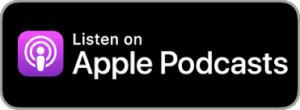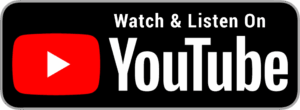Title: Dr. Lindsey Harding – Providing Care Through A Pandemic
Guest: Dr. Lindsey Harding
Peter: Welcome to the Biz and Life Done Well podcast, where we explore what it means and what it takes to do business and life well. I’m your host, Peter Wilson. If
Peter: you’re
Peter: like me, you’re intrigued by stories of common people who have achieved uncommon success in business and life. Join me as I interview fascinating people about how they got started, their successes and failures, their habits and routines, and what inspires them.
Peter: My guest this week is Doctor. Lindsey Harding. She is a naturopathic medical doctor with positive touch medicine. She provides general medicine services with an emphasis in mental health, endocrinology, and gastroenterology. We have a conversation about the year that’s passed and what impacts it’s had on her practice and the way that she practices medicine.
Here’s our conversation.
Peter: What things
Peter: did you do for the practice in 2020? You know, what changes did you make in your procedures that you think will last potentially forever? So you were forced to make some changes and now you realized, hey, maybe we should continue doing this.
Dr. Lindsey Harding: Yeah, well, first we lost our previous office admin. It wasn’t due to COVID, she’s actually attending Bastir currently. And so she just bumped up from her summer quarter, well, her first year and, oh gosh, now I can’t remember what year she was in. 2020 feels like it’s been so long, but her class load increased basically. So she couldn’t be here anymore.
So finding a new office administrator and realizing that we didn’t have a lot of our procedures and like daily tasks written down or how to do them. And so having to create all of that and then teach someone was kinda like doing double the amount of work. So, we have all of that stuff written out now and saved, in multiple places. And so that was a big change. Going through our patient list for last year and creating an email list that we could use to contact patients.
The main purpose for that was for safety reasons at first with COVID and then using that for media growth. And those would be the two biggest changes that we made this year in terms of office procedures. Mean, we’ve increased cleaning a little bit, but there was already a lot of cleaning involved because it’s a medical office. Oh, and learning a little bit more about the ins and out of telemedicine since a lot of rules regarding HIPAA were waived with COVID. So making sure that we stay on top of education when it comes to that, what we I’m can and can’t
Peter: interested in the telemedicine side of things just as being a patient of medical services as well. So I’m assuming you saw a dramatic increase in the use of that during 2020.
Dr. Lindsey Harding: We did. I mean, first part of, I’m just calling it COVID.
Peter: Yes. Perfect.
Peter: The COVID era.
Dr. Lindsey Harding: I would say we just had a really sharp decline in patient visits, whether it was telemedicine or in person in general. Everyone was just trying to ride this out, you know, I’ll be fine. I can just wait. And then after about a month, month and a half of that, we had more people starting to schedule telemedicine visits. And we probably kept about 50 to 60% of our patient volume using telemedicine and then the few people who did need to come into the office for routine exams and whatnot, people who have diabetes and heart disease, whatnot.
And then around July, seemed like a lot of people hit their, I’m done staying at home phase, I wanna come back in because I’m really missing human contact. And so we started allowing people to come back in at that point, there was a lot of kind of maintenance of how many people could be in the office at any one time and who’s allowed to come in, who’s not allowed to come in, but anyone who lives alone, we were like, please come in and receive some human contact.
Peter: And did things flip back the other way in November, December?
Dr. Lindsey Harding: Yeah. I would say almost everyone is coming into the clinic for their visits now with the exception of people who have children and their children are at home and the parents need to stay at home to supervise and they’re using telemedicine still.
Peter: Got it. So you think that that will be the norm going forward or do you even wanna hazard a guess on sort of what your, you know, what percent of your visits are gonna be telemedicine in the future versus in person?
Dr. Lindsey Harding: Yeah, so future moving forward, first of all, we’re only a clinic with two physicians and we each only see one patient at a time, know, we don’t have people waiting in rooms. So really at our max patient load, there’s only ever, you know, two patients in the clinic, two physicians and our office administrator. So five people in, you know, 200 square feet. But I would say moving forward, it really was telling to see how telemedicine just does not provide the same quality of care as going in and seeing your doctor in person. I did end up getting quite a few new patients this year, I would say from August onwards into December, from people who had been trying to reach their physicians or new physicians and were only being seen through telemedicine and had just been kind of, they all felt like they were just kind of being waived through the medical system.
Like there was no testing done, people were just randomly prescribing antibiotics and a lot of people just felt like I’m not being heard, I have a fifteen minute telemedicine visit, but they’re telling me I have, you know, a possible lung infection, but they don’t want me to go get a chest x-ray and they’re just telling me to take an antibiotic. Well, most upper respiratory infections are viral.
Peter: Right.
Dr. Lindsey Harding: And, you know, with COVID going around, everyone is terrified that they may have that. And so I feel like practicing mainly telemedicine did result in lower quality of not just the care, but the accuracy of diagnoses. And it really just increased a lot of people’s anxiety. So going forward, I do see us, you know, even if we had to shift backwards to go into more of a lockdown phase, us really trying to continue to accommodate seeing people in person, even if that’s just, one patient in the clinic at a time and just rotating
Peter: that And one of the things that I’ve heard about your practice or the way that you practice medicine is that you do a full visit when you’re meeting with a patient, you have like quite a bit of time to focus on the patient.
Dr. Lindsey Harding: Yeah, for the first time I see a patient, I usually spend a full hour, if not a little bit more with them. It usually just depends on what they’re coming in for. If you’re just coming in for like an annual exam, it’s usually closer to forty, forty five minutes. But because I specialize in mental health, if, you know, I know ahead of time you’re coming in because you’ve got a lot of anxiety or depression, I’ll frequently block off an hour and a half on my schedule. That way I have a full hour for you to really go in detail about what’s going on with you, and then I have more time to kind of walk you through the steps and the options of where you’re at, what you’re willing to implement right away, and then, you know, other potential resources that would be beneficial.
Peter: So how does the mental health aspect of your practice and naturopathic, how they work together?
Dr. Lindsey Harding: Yeah. I think a lot of people don’t really understand that because they think, well, if you have a mental health condition, you just need a pharmaceutical to balance out the brain. But there are a lot of nutrients that can do the same things. And it’s all really stemming from why do you have what you currently have? Like, why are you dealing with that right now?
For a lot of people, it’s childhood trauma. You know, it’s not necessarily something neurochemical always, but there are a lot of things that can help your current symptoms without using a pharmaceutical. Pharmaceuticals can be great too, don’t get me wrong, I’ve got a lot of people who love their antidepressants, gets them through the day and they would much prefer to take that than have to take more things if it’s natural. But naturopathic medicine with mental health is more about the integrative side of medicine, where we’re trying to integrate what can you do with your lifestyle? So diet, exercise, all of that, what kind of counseling do you need?
Do you need like extra support? What’s your family and friend support system like? You know, we have to check so many boxes in areas of your life to make sure that, you know, if you’re having a really bad day, that doesn’t turn into a really bad spiral and end up being something life threatening. And that’s really different for everyone. So for me, I feel like my biggest role is making sure that I completely understand what’s going on with someone’s life and their work life and between their friends and their family members.
And of course, I I say completely understand. Can never completely understand.
Peter: Nobody can. Right.
Dr. Lindsey Harding: But I feel comfortable for the most part that I know those major risk factors and protective factors, and then I can recommend things to help them whether it’s for their symptoms or something for some other aspect of their life, because we often overlook that how your mental health is reflects on your physical health. So there’s much higher rates of diabetes and heart disease when you have a mental health condition. There can be a lot of neurological symptoms that can happen. It can be really, really widespread.
Peter: So getting back to, you know, sort of the COVID era versus going forward, any silver linings that come to mind right away when you think about sort of what we’ve been through and how we move forward?
Dr. Lindsey Harding: I would hope that a silver lining for a lot of people is that we learn how the little things we do in our life impact other people around us. Because everything we do every day of our lives impacts the people around us. And I think we frequently forget about that. And I know there are people who don’t care right now, but I would hope that they’re in the minority and that the majority of people really take to heart just how big of an impact one person can have.
Peter: I’ve heard others relate a similar sentiment, maybe expressed a little differently about life’s little things. For example, just a conversation with a friend, the value of that. And, you know, now that a lot of that’s been torn away from us, each time we do have an opportunity to get back with someone, maybe we’re less likely to take it for granted. I know. I think I hope.
I hope I am. Well, thank you for sharing your thoughts today on the year that we’ve been through and looking forward. And I hope to have you on again as a guest at some point.
Dr. Lindsey Harding: Of course. Thank you, Peter.
Peter: Thanks for listening to this episode of Biz and Life Done Well with Peter Wilson. You can subscribe to us on iTunes, Google Podcasts, Spotify, and most of the other popular podcast platforms. Please tell your friends about us and leave us a review so even more people will find out about us. Thanks again. We’ll see you soon.


